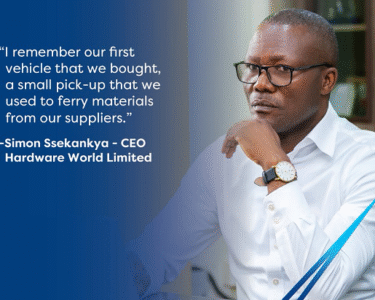By Jeremy Awori
August 20th, 2025
Africa’s ambition for economic transformation is anchored in the African Continental Free Trade Area (AfCFTA). With SMEs driving more than 80% of employment across the continent, the promise of creating the world’s largest single market by population is both bold and achievable. But to unlock this vision, Africa must go beyond trade agreements and political will. The real challenge lies in building the right infrastructure — not just roads and ports, but also the digital and financial systems that power modern economies.
The Missing Link in Africa’s Trade Ambition
Today, cross-border payments remain expensive and inefficient. Financial services are still out of reach for millions, particularly rural and low-income communities. SMEs, despite being engines of growth, face a daunting $330bn financing gap. In agriculture, manufacturing, logistics, and education — sectors that should be scaling under AfCFTA — weak financial infrastructure continues to hold businesses back.
A Cloud-Powered Future
The solution lies in reimagining Africa’s financial backbone. Legacy systems must give way to cloud-based platforms that connect banks, fintechs, regulators, and entrepreneurs through secure, interoperable digital rails.
The potential is immense: Africa’s digital economy is projected to reach $712bn by 2050. With 1.1bn mobile money accounts already in use, markets such as Kenya, Ghana, and Nigeria are proving how digital platforms can expand access and inclusion. But this progress is just the beginning.
Investing in real-time payment systems, harmonised data standards, and open APIs can create a truly continental financial network. This means a small farmer in Rwanda could instantly receive payments from Côte d’Ivoire, or a fintech in Accra could deliver affordable loans to informal merchants using cloud-driven platforms.
Cloud as an Enabler of Inclusion and Security
Cloud technology not only improves flexibility and efficiency — it also strengthens cybersecurity and compliance. Trust in digital systems will depend on data protection, privacy, and safety. By adopting cloud-first financial ecosystems, African banks can meet global standards, attract international partners, and deliver better services to digital-first customers.
At Ecobank, our recent partnership with Google Cloud reflects this vision. Together, we are modernising our core systems into a Banking-as-a-Service (BaaS) model that allows fintechs and ecosystem players to plug in seamlessly. This will lower costs, speed up cross-border payments, and expand financial access for underserved communities — while ensuring strict data residency and sovereignty protections.
Real Impact Across Key Sectors
Digital financial rails are not an abstract ambition; they directly impact Africa’s real economy. In agriculture, efficient payments improve farmers’ incomes and reduce trade bottlenecks. In manufacturing, interoperable systems allow SMEs to scale into regional value chains. Education and healthcare services increasingly rely on the ability to move money securely across borders.
Equally important is inclusion. Women entrepreneurs, youth-led ventures, and informal traders stand to gain the most from lower costs, better access, and reduced barriers. Without these reforms, AfCFTA risks leaving behind the very groups most vital to Africa’s economic future.
The Next Decade’s Priority
Six years after AfCFTA’s signing, the message is clear: trade treaties alone are insufficient. For Africa to prosper, digital infrastructure must become a top development priority. A connected, cloud-powered financial system is not optional — it is the foundation on which Africa’s integration, competitiveness, and growth will be built over the next decade.






